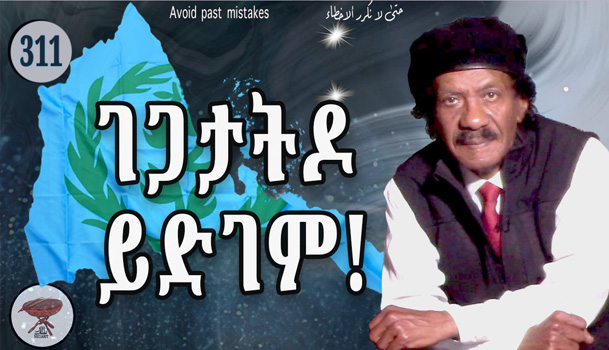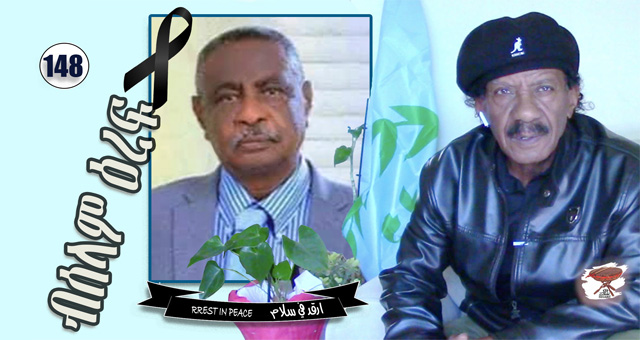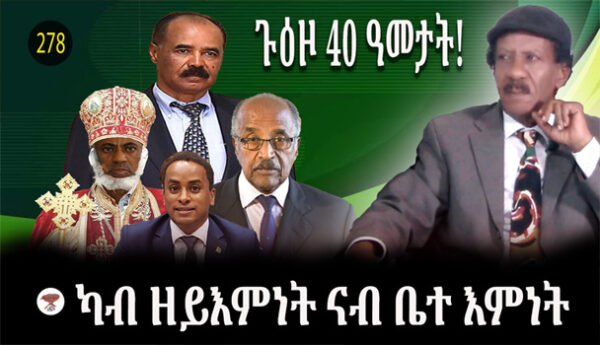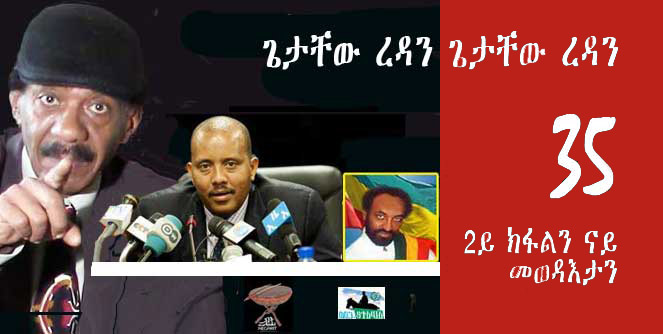Abiy’s Red Sea Obsession and the Blue Wave’s Challenges
The last few weeks have been filled with significant developments, though one issue seems to have lost momentum: Abiy’s Red Sea obsession and the Blue Wave conference in Addis Ababa.
It’s good to remember that hate of others doesn’t translate to love of your people; even the self-centered do not necessarily hate others; they must pressure you to like them, but they are not interested in hate. Importantly, it’s in the realm of politics, which is not an easy task. One must know his limits and be rational—people have one life to live; no one lives as long as Methuselah; only dictators think that can!.
- The Red Sea Obsession: Abiy’s “Qey-Bahrachin”
Abiy has kept the Red Sea at the forefront of his national security agenda, using it as both a strategic concern and a tool for political agitation. His reckless recognition of Somaliland seemed to stir tensions, but it appears that Erdogan has managed to calm him down, as Abiy has not mentioned the Red Sea issue in recent times. Whether it was Erdogan’s diplomatic influence or the soothing effect of an Indian flute, we can only speculate. With eight countries directly involved in the Red Sea region, Abiy’s approach was provocative and ill-advised, though hopefully he moves past the obsession. - From EDA to the Blue Wave
In 1991, the PFDJ made a dangerous decision to treat Eritrea as its personal war trophy, sidelining other stakeholders and causing long-term harm to national unity. This move, while supported by some, led to division, splintering, and even tragic losses like the assassination of Zekarias Negusee in Dessie and the kidnapping of Gebreberhan Zere in Tigray over two decades ago. - Hawassa vs. Debre Zeit
In 2012, a significant opposition conference in Hawassa brought together over 500 participants from various factions. Unfortunately, Ethiopian intelligence infiltrated the event under the guise of the Sen’Aa forum, manipulating the proceedings. As a result, the opposition was divided, and the Ethiopian handlers organized a hasty congress in Debre Zeit in an attempt to regain control. However, this failed to suppress the achievements made in Hawassa and instead inflicted considerable damage, leading to the disarray and inexperience we see in the opposition today. - Tsadqan, Machiavellian Moves, and the Blue Wave
A recent (Blue Wave+) conference in Addis Ababa caught attention, though many in the government were unaware of it. The event, initially delayed due to security concerns, was well-attended and seemed to have support from Eritreans in Addis. The main contact for the conference I said to be General Tsadqan, which raises the question of whether he can pull this off behind the back of the Abiy government. But it seems this was his initiative. While it’s unclear whether the government is officially sponsoring it, Tsadqan’s involvement suggests otherwise.The conference was not sotto-voce like in the past. It was held in a functions hall at the Addis Ababa Expo grounds by Mesqel Adebabay. I contacted several people close to the government. All except one said they didn’t know about it until I mentioned it! They also said the event, planned for an earlier day, was postponed due to the security forces rounding up people, and many avoided venturing to the streets. Thus, it was delayed for a day or two. But did they stop the rounding up, or did the security situation improve? I don’t think anything changed, but all was mechanizations to blur the news. - Kara-Wray and the Party Kitchen Knife
I’ve warned before about the presence of opportunistic elements—what I call the Kara-Wray crowd—who attend events merely for personal gain or as a habit. These individuals, previously seen at Abiy’s Tedemerenal parties, have a habit of jumping from one cause to another. If movements or parties are to succeed, security and discipline are crucial. The Blue Wave must avoid the mistakes of the past, where disorganization and lack of professionalism led to failure. It’s essential to identify those who are not genuinely committed and ensure that anyone who reflects poorly on the movement is dealt with swiftly.Surely, a big chunk of the attendants, though wrapped in Meley, Khedra, will certainly attend the next party regardless of who organizes it or its goal.
- The Tigray Elite and Their PositionsGeneral Tsadqan represents the more hawkish faction within the Tigray camp, publicly advocating for conflict. On the other hand, he is part of the Getachew’s group that is closer to Abiy’s regime but focused on Tigray’s interests, while Debretsion’s faction remains loyal to the traditional TPLF and claims it’s the inheritor of that legacy; it adopts a more pragmatic approach toward Eritrea. However, this pragmatism could be dangerous for Eritrea, as the PFDJ and TPLF are both unpredictable and switch from one extreme position to another.
Conclusion
During the struggle era, Eritrean combatants were driven by a love for their people and country, not by hatred for others, even Ethiopians. Today, the PFDJ is stifling progress, sitting atop mineral wealth extracted by foreign entities while oppressing the people. This is the power they are protecting. I may continue exploring this topic if I receive mature and thoughtful responses.
Until next time, stay steadfast and avoid empty rhetoric. Let’s remember the Eritrean people, who deserve much more than what they’ve been given. May we reach a brighter future beyond the dark horizon, where peace, stability, and prosperity prevail.





Awate Forum